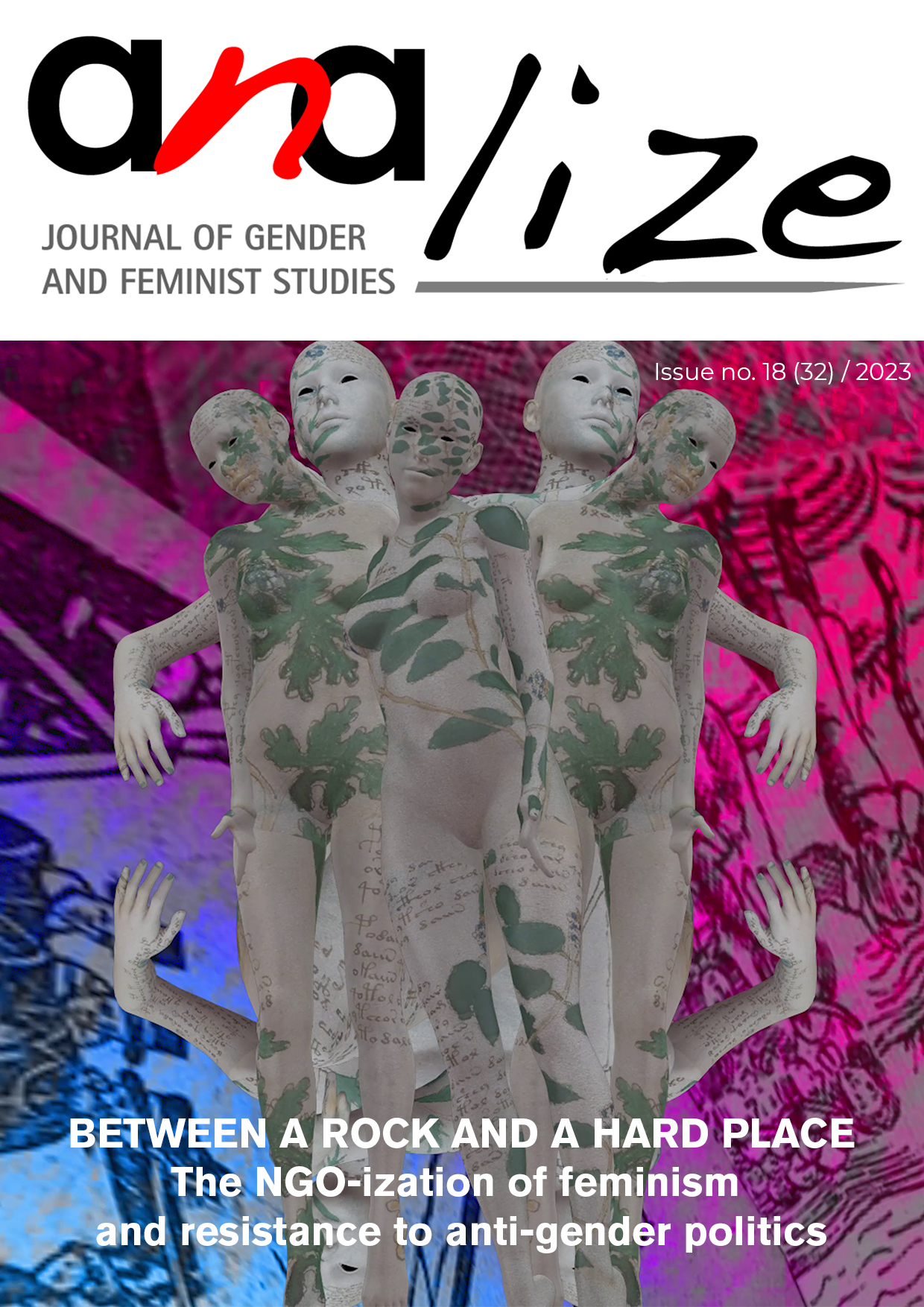Polish feminism in the (battle)field: resisting and building a new identity
Polish feminism in the (battle)field: resisting and building a new identity
Author(s): NATASZA QUELVENNECSubject(s): Social Sciences, Gender Studies, Social Norms / Social Control
Published by: Societatea de Analize Feministe AnA
Keywords: feminism; illiberalism; Poland; gender equality; abortion; women’s cause field;
Summary/Abstract: Polish feminism is undergoing a refoundation following the emergence, in 2016, of massive, intersectional, and radical mobilizations known as Black Protest. It faces two challenging objectives: 1/ the intensification of attacks on gender equality and democracy following illiberal turn since 2015, 2/ the need to distance itself from earlier feminist organizations, considered as inefficient, elitist, and too institutionalized. This article examines how both these attacks and boundaries between different forms of commitments (as woman, as feminist, as citizen and as institutional insider) shape feminist movement in Poland. To analyze its structuring, I use Laure Bereni’s concept of women's cause field, rooted in Bourdieusian tradition, that describes the architecture of collective protest. My analysis is based on empirical materials collected through a qualitative methodology that includes interviews, participant observation, archival research, and processing of prosopographical data. Structurally heterogeneous and divided, Polish women’s cause field builds its new collective identity through innovative repertoires of action: 1/ mutual aid and exchange of experiences as women, 2/ networks of groups and individuals interconnected by multiple affiliations, organization ties and sites of convergence, but acting locally according to activists' sensibilities and needs, and 3/ civic commitment and participatory democracy measures. While responding to a global attack on human rights and citizen freedoms, these tactics reflect a certain disavowal of the state, its institutions, and too institutionalized forms of feminism. However, while competing with established fractions, new formations show a pragmatic approach focused on problem solving beyond ideological divisions and use its most powerful networks, concentrated within political institutions, in the legal and medical field, both to advance the feminist agenda and to defend women, LGBT+ people and activists against highly repressive policies. The convergence of all sites of resistance, different but cooperating on a large scale, makes Polish feminism able to resist illiberal power.
Journal: AnALize: Revista de studii feministe
- Issue Year: 2023
- Issue No: 18(32)
- Page Range: 15-37
- Page Count: 23
- Language: English

